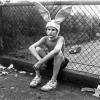Search the Community
Showing results for tags 'childhood'.
-
Hey yall, I have been off the forums (was of course still donating) for about 4 years but still on board with FDR's message. I am having some depression issues lately I would love to talk about with some people. I have been to therapy and had a talk on Stefan's show years ago but am still fighting some demons deeply ingrained in me. Background: My parents neglected me my during my entire childhood, they ignored me when I was physically and verbally abused at school/church/home/by my older brother/everywhere. When I was 10 I voiced a concern that I was extremely unhappy with how life was and would not mind dying. I was not asking to die then, I was just stating that I would totally accept that as a finality to escape everything I was forced to deal with. My parents, being asshats, decided to drug me with SSRI's (when I was 10) which only increased my suicidal thoughts while simultaneously convincing me that I cannot trust my parents to take care of me. I stopped opening up to everyone and everything and was essentially a walking husk from age 10-21. I cried almost every day due to the social isolation/bullying/no empathy from anyone/no one cared about my experiences and other emotionally devastating experiences that would take up far too much room on this post so I will leave it with this: I was told my entire life to man up, stop crying, blah blah blah other completely heartless things a normal person would NEVER say to a victim of physical/emotional abuse. From ages 10-21 I wished for some way to die, not by my hands because my self esteem had been so utterly destroyed I could never bring myself to do such a thing, it would just be a very easy escape from the situations forced on me that will never leave my mind. My issue as of today, I am 25, is that the part of me that was forced to go through those experiences is still with me and he is still emotionally devastated. I have given that entity, I call him childhood me, as much love as I possibly can. I tell him every day that I love him, I support him and we can never go back in time to give ourselves a happy childhood that we should have had. I encourage him, I support him, I NEVER call him names, I don't put him down and I try to treat him as nice as possible because of how terrible I feel for the crap he had to put up with. Despite this self-love, the childhood me still feels like a mutilated rag-doll that has felt such self-hate, external hate, ridicule, humiliation, neglect, cold indifference and isolation he is still opting for the surrender and give up option. I am seeking more therapy but in the long-term the therapies I went through did not seem to curb these thought process. Please let me know your thoughts, the current me does not want to die. He (current me) wants to fight child abuse to his dying breath but he is forever-more linked to the childhood me who is still suffering from a lack of love/connection in my past. -Jeremy Motivation for song: NF Let you down
-
Hello Stefan, Thank you for your video titled "An Important Birthday Message From Stefan Molyneux", I enjoyed listening to it. Even though I understand the essence of the message, it does not change my desire to not have children. In all honesty, I don't think I'll live long enough to care about never having had children. 9 years ago, I discovered Stefan's content about peaceful parenting and the effects of spanking/abuse. I became angry. Extremely angry. At my parents. Also at myself for letting it happen (even though there wasn't much I could do back then). It took me years to identify all of my behaviors, defense mechanisms, habits and attitudes that were a possible direct result of the abuse, address them and attempt to change them. I'm still not done but I've made quite a leap. I'm 42, Sunday was my dad's 65th birthday. 3 weeks ago, I decided to post a long blog post about my experiences & the abuse that my brother and I suffered. It was not meant to present myself as a victim or a survivor (I despise this word), it was to share personal consequences so that those who have suffered abuse but never made the link could (if applicable) suddenly realize that who they are & what they think and do might be because of this abuse. I also listed the long list of consequences made available by the scientific literature. I concluded by saying that even though I want to remain far from my parents, have few contacts with them and do not want to care for them, I forgive them. But they know that my desire to push them away is a direct consequence of my realization of the consequences of their behavior & abuse. Last week, my relationship with my partner with whom I have been for 4 years ended. She's the love of my life. But 3 months ago, I discovered that I'm sterile. She's 32, she WANTS kids. I won't go into all of the details, but due to many factors, we concluded that it was time to go our separate ways. We love each other deeply, but for her to be happy, I must let her go. It's possibly the most difficult decision I've ever had to take. But, in some ways, it's a relief. For over two decades, the main reason why I didn't want to have kids is that I didn't want to imitate my parents' behaviors. I thought that because abuse is all I had known, I felt that I was at risk of reproducing the same behavior with my own children, of perpetuating this cycle of violence. So I decided to never have any children of my own, for their own sake. With this partner though, and with the changes that I have gone through in the last few years, I was telling myself that even though I don't want kids, it would probably be okay to have some with her. But really, I was fooling myself. These thoughts were coming from a need for emotional security and relational stability. It took me a few days to realize that (having been trained in non-violent communication helped me a lot during this process). These thoughts were not fair to her, and I came clean. This coming weekend, I'm moving out. I want to give her space, and time to "get over me". It's not easy for her, she's been crying a lot recently. Me too I must admit. We're both very sad. Rarely will you hear of people getting separated because they love each other. But deep down, I know that the only way to make her happy is to let her go and find someone who wants kids (and be with that person). So to come back to Stefan's message, I've had [for years] this distinct feeling that I won't live long. I regularly think about ways to end my life. Not that I'm ready to do it (it's not at all the case, I still find reasons to get up every morning, even though I'm just a slave in a meaningless company), but I think about the impact on people around me, how I would do it and when to do it. If this is what I've been thinking for a long time now, why would I have kids? One day, the physical consequences of this childhood abuse will get to me. I'm a pessimist and I'm tired of living on this farm & to be livestock for people who do not give a flying fuck about my state of mind & health. So why impose such a sad view of life on children? Over time, I've changed many behaviors and ways of thinking, but some remain. And they don't change, even if I'm conscious of their existence. I have potential, but I also have limits. And I'm not the type to see hope everywhere. I have a very negative outlook on life, which I believe comes from childhood abuse (that and the fact that I don't have a penny to my name, another consequence of this abuse). I'm certain that one day, I'll be just another puny statistic on male suicide. So why impose such consequences on children? It would be totally irresponsible to have kids to then kill myself when they are old enough, or when I will definitely have had enough of this miserable life. I'm glad that some folks out there want kids and are happy having some. This is not in the cards for me. And in any case, I believe it's too late for me. I want to travel the world, see great things, and die in peace. I do not believe in an afterlife, nor do I believe in a god. In my eyes, we're just alive. We are utterly insignificant in the grand scheme of things and I don't believe that we are oh-so-fucking-important. We're not. You're not. I'm not. One day, I'll just cease to be, and will be as historically irrelevant as any other biological entity before (and after) me. This is not a way of thinking that I wish to convey to my possible children. At least, in my opinion anyway, I am awake enough to know this is not a proper state of mind to raise children. In conclusion, thank you Stefan for your positive contribution to this world. I'll try to leech a bit more of your knowledge & wisdom here and there until I'm done. :-) testdummy
-
- peaceful parenting
- childhood
-
(and 1 more)
Tagged with:
-
Couple of years ago a large portion of the call-in shows either focused on or evolved into (sometimes from seemingly completely unrelated topics) childhood talks with the callers. I found this the most powerful way in which Stefan would both connect emotionally and go to the roots of the problem of the callers. I have had many shocking insights listening to those. For about a year or so now, I have noticed a significant decrease in the amount of callers and time spent focusing on callers childhood experiences. This year, 2016, without claiming to have listened to all the shows I would still confidently assert that I could count the times the childhood question at least came up on the fingers...and I have no theory to why this is... I could probably entertain the fact that Stefan might have shifted the focus away from this due to him considering that it is the time for more macro orientated talks rather than really personal ones, but I remember being times during the call-ins where I could not imagine any reason for why this topic did not came up...first example that comes to mind is the quite recent call where a couple was on the fence about having kids or not and from the way they talked it was so clear that they had unhappy childhoods...and if I am not wrong Stefan did not even go into the callers past for one second which was shocking to me since I remember him always doing that in the past in similar kind of situations. What do you think?
-
I remember listening to a call about social anxiety (first call). If my memory serves me right, at some point Stefan affirmed that "people with good childhoods do not have empathy for people who had bad childhoods" (and as a result developed social anxiety). It is very likely that I am paraphrasing and that this were not exactly his words but I am really confident that he said at least something very similar to this. I remember wondering at that time "well, if they had good childhoods how come they are not empathetic? Is not empathy something that develops naturally as a result of good parenting?!" I know that the word "good" is very broad and vague and does not provide enough context but knowing that Stefan is really precise with his language and does not sugar coat things at all on this matters I would have a hard time believing that when he said "good" he really meant what most society would call "good", which is in fact dysfunctional/abusive. And such...why I am not seeing here?
- 16 replies
-
- empathy
- social anxiety
-
(and 1 more)
Tagged with:
-
Looking back in my childhood and teenage years I realize that I seemed to be very different from most of my peers in regards with anything social especially. Every since I can remember most of my peers and classmates had a much easier and enjoyable time making friends, having a good time interacting with each other, being more confident and not fearing getting in conflicts with one another. They were more combative in dealing with their peer, more charismatic, louder, more assertive, much more socially savvy etc... When it came to studying there were a lot that were more determined, had an easier time learning the material in class, more motivated - generally they had clearer visions about what they wanted to do in the future and took better grades. The greatest disparity and the one that made me feel the worst is the dynamic of the interactions between them...they seemed to talk a language that was really foreign to me, I was an outcast. Most of them ignored me all throughout the school years, I think because they did not see any value in interacting with me. They started going on holidays by themselves with their friends, going clubbing, having boyfriends/girlfriends and all the typical things for teenagers. I was bullied a lot and did not go through any of the teenage stereotypes. My teenage years were mostly spent sitting by myself in my room. I not a long time ago realized that there was always deep lingering sentiment of inferiority that I had. I was very deeply ashamed of myself that most of my peers had such an easier time compared to me, at least when they were outside the house. However, listening to most of the call in shows with people that had a similar past with mine Stefan would make the point that they had a worse childhood than their peers and that their peers did not have empathy nor sympathy for them. I found that calls very powerful and got me very emotional because how much they resonated to how I felt and Stefan's words sounded almost too good to be true. I think that unconscionably my mind was going...:"wow! so do you mean to tell me that all of this was not because of deficiencies on my part but because I had a worse childhood than them? This feels so relieving" My doubt comes from the fact that I actually do not know what happened in their childhoods, I do not know what exactly they got that I did not, or what abuse I did go through that they did not...and I came to wonder how bad my childhood was compared to theirs if it was indeed worse at all. Do you have any idea how can I find this out? What about your childhoods? How much worse or better were they compared to most of your peers?
-
So, in my online dating hunt I see something that disturbs me over and over.. It's worded differently every time, but the sentiment is the same.. I love animals more than people. Why do so many young women feel this way? It doesn't make sense to me. There is simply no way that one can connect with an animal with the full range of emotional intimacy, honesty, curiosity, empathy, and authenticity as you can with another person. And yet, there seems to be a large number of young women who really feel as though they love their precious pets with all of their heart, and that this love can't be rivaled in a relationship with another man. This is deeply troubling if that is even remotely true. To me, that signifies a damaged emotional apparatus and an inability to genuinely connect with people. And don't get me wrong - relationships with pets can be deeply rewarding, affectionate, and enjoyable. Nonetheless, I find it disturbing when I read a Tinder or OKCupid profile which has this red flag waving on it. What are the causes of this strange phenomenon? Why does it seem to happen primarily to women? It's quite possible that it happens with similar frequency to men, but men remain less vocal about their preference. I'm almost positive that this is not healthy, but am open to correction if I'm missing something. What are your thoughts?
-
Hello everybody. Long time lurker, first time poster. I wanted to bring up the subject of comfort objects that many of us attach to as children (i.e. stuffed animals, blankets, etc.) In my case, I had a blanket that I would cling to. I wouldn't be able to fall asleep without it until the age of 6 or so. With what I've gathered from reading articles about it, the consensus seems to be that it's a perfectly normal and healthy thing that even helps a child develop. I'm not sure if it's been discussed on the podcast or this forum before, but I find myself questioning the dogma that it's normal and healthy. I can certainly see that if a child isn't having their needs met and they aren't forming a healthy attachment to their parents, they could end up forming an attachment to an object instead. I'm curious to see what thoughts you guys have on this. It's something I started thinking about and I haven't made any conclusions yet. Did you have a comfort object also? Is it normal and healthy?
- 10 replies
-
- Childhood
- Attachment
-
(and 3 more)
Tagged with:
-
A month ago, or two, I had a weekday off and went to a newly opened cinema oriented on less popular quality movies. Without too much pondering, the choice fell on Amy, a documentary about the artist, as I thought it would be an interesting watch considering her quite recent death and what tabloids described as a messy celebrity life. I had the privilege to sit in a small ~40 seats theater with great speakers, a big plus for a music themed movie. To the benefit of the filmmakers, there is plenty of video documentation of her life. The audience is shown the artist handling and escaping from paparazzi, interviews on national TV, captivating performances, but also personal recordings. Birthday parties with the typical faded colors and blur of a 90's home video, shaky filming sessions with friends and business people in her daily life, it is all mixed together so that we can follow her from a shy girl in the suburbs to a world famous soul singer to her death in her home in Camden. The movie timeline is like a rollercoaster continuously going up and down, with periods of success and joy, to lows of despair and chaos. The pattern is repeating, but I never experienced it as boring. You will understand that Amy was a particularly talented artist and unique character, which made her such a hot topic in British media. I think I would have found her to be a bit annoying with her childishness if I had met her in person, but she has a certain charm that makes it hard for me to not like her as she is portrayed in this film. The typical narrative of describing someone leading such a troublesome life would be that she constantly had to fight these mystic inner demons, but in this documentary people who knew her are allowed to say what they thought was the main cause of her pain: her father. I will not go into details how their relationship affected her, in order to not spoil too much, but you will likely see the connection. This is a well made documentary that I especially recommend to all of you who are interested in how childhoods affect people.
-
I’m currently working on overcoming a powerful emotional response I have when it comes to asserting my own preferences. My problem is I don’t. When I attempt to I hit a wall of fear that leads me to staying quite or not participating. I’m currently in therapy and I've figured out where it comes from. I’m just not sure the best way to work through it. The problem comes from early childhood where I learned not to put fourth my own preferences as this would result in abusive behavior from my mother. One of three things happened when I put forth a preference. One, my mother would get angry and yell at me. Two, she would attack what I put forth as a desire. Three, if it was with other people she would make me feel insecure about going to the point that I would say I don’t want to go. What I've found that has helped in the past is re-imaging scenarios placing myself in there as an adult and defending myself from her. I've grown comfortable doing this. What I’m having difficulties doing is imagining myself asserting my preferences. I think the fear I experiences is abandonment and rejection. My mom threatened us a few times with taking us to an orphanage and leaving us there. With me and my younger siblings she acted like she was calling the orphanage. With my older siblings my parents drove downtown at night and told them to get out of the car. They said they were going to drive off and leave them if they didn't behave. I’m wondering if anyone has any suggestions on way that might help me work through this.
-
I made this video with a segment from one of the latest call in shows FDR2974 How to ‘Find Yourself’. It deeply resonates with me that nostalgia for the past. What do you guys think?
-
While I trust and value Dr. Maté's experiences through working with intravenous drug users for eight years, I cannot accept his conclusions because they aren't based on principles. Here is a list of the possible remedies he proposes in the book. 1) The most successful means of overcoming addictions is to open up to spirituality (something larger than yourself), whether that be god or altruism. Maté prefers a combination of leftist altruism and Buddhist principles over organized religion. 2) Minorities, especially "Natives", are abnormally affected by the malaise of drug addiction because of the viciousness and greed of white oppression. Minorities deserve reparations for this oppression. 3) Christian conservatives and libertarians lack empathy and want drug addicts to die. If we take a fraction of the money spent on the War on Drugs, more money can be spent on state-funded rehabilitation systems, reducing total crime and tax costs. Maté doesn't go out of his way to illustrate how effective his state-funded hotel is at reducing drug addiction. Through reading the book, I got the impression that it was an abysmal failure. I appreciated much of the rest of the book that didn't beg state-funded answers for questions, such as his description of how most people view addicts, how addicts view themselves, and how addiction develops in the brain. However, much to my dismay, Maté lets many parents off the hook for addiction by invoking "the best they could" mantra. This may have something to do with the fact that he is a parent himself. At many different times during the text, he conflates the desire for wealth with sickness, suffering, the source of evil, and an addiction in itself, while completely forgetting that money can just as easily fund good and desirable endeavors, like the rehabilitation of addicts. What reaction did you have to this book? I'd like to explore Maté's conclusions a little more closely, and sprinkle some voluntarism into them.
-
This is a must listen. To the degree to which this is new information is, I think, the degree of the propaganda we were made to ingest. The following is a video series / lecture by Roslyn Rose about: treating parenting as a job, why there should be no adolescence, bringing your children with you wherever you go, why children need to live in reality, childhood self esteem, and more.
- 18 replies
-
- 3
-

-
In this video I present a short concept of what does it mean to work on yourself, heal, and grow.
-
Part two in the series I'm doing on the fear of rejection.
-
My newest video. In it, James Hetfield from "Metallica" talks about his painful childhood, his relationship with his abusive parents, and how it influenced his music. I included my comments and observations in a form of hard-burned closed captions. Apologies for poor audio quality. These were the best clips I could find, and sound filters didn't help improve it, either. https://www.youtube.com/watch?v=H6XD1MPzF_A
- 2 replies
-
- 3
-

-
- abandonment
- abuse
- (and 8 more)
-
I saw the movie "Prisoners" yesterday and I thought it was pretty good. A thought I had about the movie was that the title was well chosen because children, even those who are not kidnapped, are not in their situations voluntarily. The movie, I think, showed the massive power parents have over their children by having a plot based around abducted children. There is more to the movie than that, these are just some initial thoughts of mine. Has anyone else in this forum seen the movie and if so what are your thoughts? Also, do you think my short analysis is correct? I would really like to read an analysis of this movie by someone else on this forum.
-
*Warning: disturbing, reprehensible details shared here In a recent video, the antidote to cruelty, I found revealing parallels between myself and the first caller. Basically the caller killed animals when he was younger and in his mind he was justified. Stefan pointed out that when he was younger his father was cruel to him and in his mind he was also justified. I think towards the end of the call Stef says that no one is born wanting to kill small animals. When I was younger I was messing around with this sickly cat and when it scratched me I used that as an excuse in my mind to escalate until eventually I tied the cat in a plastic bag, took it to the pond behind my house, dropped a big stone on it, then threw it in the water where I left it to drown. Maybe 3-5 years before that I was beaten by my father because I didn't respond to him with "sir". He cornered me in my room and put his hand around my throat and pressed me into the wall and was demanding that I "respect" him. I guess I knew I wasnt in mortal danger because I didnt comply, with my mom screaming at him to stop he kept hitting me until she ran out of the room and came back with some heavy metal object that she used to smash him over the head with until he released me. Ever since the incident with the cat I've had a deep hatred and contempt for myself brewing inside. I've always known that anyone who is capable of doing what I did that day is a disgusting worthless piece of shit. It wasn't until the antidote to cruelty that I connected the dots, that my father wasn't really concerned about respect, thats just an excuse he invented to hurt me. And just like my 300+ lb father I found a weak helpless creature to impose my impossible rules on in order to inflict pain. My father was severely abused by his father, and my grandfather's father was a macho military man, so I think my family has been composed of sadists for quite a while. I feel extremely emotional about all of this and I'm not sure what I'm hoping to gain from posting this here, maybe someone can confirm that my childhood indeed played a role in the cruelty I am responsible for.
-
My dad died a week before my 8th birthday, after 2 weeks in the hospital. I'm 30 now. I've been doing a lot of introspection recently and I'm feeling a lot of pain about his death. One of the layers to this is, motivated by Stef's podcasts and all the books I have found through them, I have been telling the truth to myself about my mother's treatment of me and have distanced myself from her. She was abusive and she has shown me she is not interested in being honest with herself. Part of what is difficult for me to wrap my head around is that I don't really know my dad. I have shed the 4th Commandment that I must love my parents, but the memories I have of my dad are through the lens of an idolizing 7 year old daughter. I don't have the opportunity to find out what kind of person he is or have a relationship with him, and I feel sad and confused thinking about that. I remember the big bear hugs he used to give me when he was tucking me in at night. I remember his detailed and direct explanations. I know that even though he was raised religious and my mom was Christian, he was atheist. I know the shows he watched on TV. I don't remember him ever punishing me, and his mother (my grandma) told me that to her frustration, he always explained things to me at great length instead of disciplining me. Although, I do remember times where my mom was punishing me and getting angry with me while he stood by. And, he continued a relationship with his mother despite her un-empathetic treatment and rough discipline (though she claims she never spanked him). When I finally stopped using religion as self-medication about a year ago after finding FDR, the grief became raw again. He's NOT in a better place, I WON'T ever see him again, this WASN'T for a reason to make me stronger, etc. I'd like to achieve is complete honesty with myself, and part of that is admitting that it was really fucking painful, and it still is. I can't imagine any of my childhood friends living a healthy life if they lost their father. I remember the first time I calculated my ACE (Adverse Childhood Experiences) score, I got zero (= no adverse childhood experiences). Death of a parent was not on the test, and I was blocking out the abuse of my mother and her boyfriend out at the time. That is not the reality, though. I had a very traumatic and painful childhood. I've listened to/read a lot about the effects of child abuse, but I want to gain a better understanding of the effects of losing my father. It's tough to even find one book that isn't filled with religion, mysticism or idolization of parents. Does anyone have any recommended reading from an FDR type perspective? Thanks for reading, and any thoughts on how I can gain self-knowledge towards this and heal the trauma would be appreciated.
-

Unsure of how to approach my parents to talk about my childhood
aro posted a topic in Self Knowledge
As I progress into my late teenage years, I am finding it increasingly difficult to relate to my parents. The more I look back on how they raised me, the harder it becomes for me to respect or even tolerate them. They live in a completely different world from me, my mother reads gossip magazines and my father reads red-top newspapers. They constantly watch reality tv and other unimportant drivel on the television and most of their converstions revolve around petty drama at my mother's work. I have a brother, he's ten years old and when he misbehaves they will usually just shout at him and threaten to spank him or as they like to put it, "give him something to cry about". Then when I try to intervene to prevent my brother from being mindlessly shouted at they say something along the lines of "Here comes supernanny" and "You think you know everything". When I was growing up I didn't have someone to intervene and point out the ineffectiveness of yelling and spanking and I suspect that it has had a significantly negative impact on my personality. Let me give a more specific example of how my parents would react to me acting up as a child; From the ages of around 3 - 7, when I dared to get out of my bed past my bedtime my father would shout and spank me and if that didn't work, he would take me to the utility room and lock me in there until I stopped crying. The room was pitch black and I was too small to reach up to the lightswitch so I would sit there absolutely terrified and have to force myself to stop crying so I could get out. I had nightmares about this for years and I still get chills if I go into that room with the lights off. I now want to approach my parents and talk about their methods of parenting to see if they can justify it. I know they can't, most of the time when they dealt with me they were simply trying to get me to stop crying the quickest way possible without ever reasoning and negotiating with me. Has anyone else had similar experiences with their parents? If so, how did you raise these issues with them beacuse the most likely thing that will happen is that I'll bring this up and they'll shoot it down straight away with "I was spanked as a kid and I turned out fine" or "We were under too much stress". -
It's not finished, but I was so eager to share what I had, I felt like posting. Enjoy In the film Tangled, Disney's version of Rapunzel, the story begins by having the film's anti-hero, Flynn Rider, give the audience back-story which introduces us to our main characters. Rapunzel is a daughter of royalty. Her parents rule over an unnamed kingdom that is home to a magical golden flower that has the incredible ability to heal wounds, illnesses, and even reverse aging. However, the flower is only a legend to the King and Queen as well as to the rest of the kingdom. The only person who is certain of this flower's existence and its location is the film's antagonist, Mother Gothel. Mother Gothel is a very old woman who uses the flower to to stay forever young and beautiful. In order to continue using it, she hoards it by making sure it is hidden under an artificial bush. When the Queen is pregnant with Rapunzel, she becomes struck with a fatal illness. Desperate to keep his wife alive, the King sent his army to search for the Golden Flower to use its healing properties. The film then shows us Mother Gothel attempting to use the flower again. Before she can activate its power, she becomes startled by the sound of a squad of the Kings' soldier's footsteps moving towards her location, so she quickly rushes to conceal the flower with her fake bush and hides. Unwittingly, the accidentally knocks over the flower's cover with her foot as she hurries to get out of the approaching men's sight, leaving the glowing magical flower visible. Once the soldiers see the flower, they immediately take it back to the castle and use its magic to save the Queen. Thus, a healthy baby Rapunzel is born. Rapunzel was not merely healthy, though. Thanks to the potion's magic, Rapunzel was born with golden blond hair with the flower's ability to heal. All seemed well in the Kingdom, but Mother Gothel was not unaware of Rapunzel's whereabouts. In fact, she followed the guards and witnessed what became of the flower. Eager to keep getting her fix of age reversing magic, Gothel kidnapped Rapunzel and took her to a faraway tower where she decided to raise the baby as her own daughter. It is at this point our exposition scene ends and the actual film begins. So far, my first impressions towards the film are very positive. The animation is breathtakingly gorgeous, the humor is charming, and the pacing is just right for my taste. And while there is much to say about the technical aspects of the films, my purpose in this review is to bring attention to the more disturbing and subtle psychological themes within the film, so my main focus will be on the characters. I do want to be clear that I am not a psychologist and thus am not trained to diagnose mental illnesses. These are simply my thoughts that I will try to make a rational case for with the help of some very useful material I've read. Some of the terms I'll be using are based on highly complex concepts that have a plethora of literature written about them, which I have only been exposed to a small percentage of, so I'm in no way an expert. The first character that I want to explore is the evil Mother Gothel. I originally thought this character was a typical narcissist. Her gross obsession with youth and beauty, the multiple mirrors in her house, as well as her exploitative tendencies, all of these things seemed indicative that Gothel was a Narcissist. However, after giving the idea more thought I realized that, due to Gothel's willingness to murder, kidnap infants, and chronically lie to get what she wants, I decided that she would best be described as a sociopath, although it is clear that she exhibits classic narcissistic characteristics, such as vanity. To use the helpful distinction that clinical psychologist Martha Stout lays out in her fascinating book “the sociopath next door”, the difference between Narcissism and Sociopathy is that ”Narcissism is, in a metaphorical sense, one half of what sociopathy is. Even clinical narcissists are able to feel most emotions as strongly as anyone else does, from guilt and sadness to desperate love and passion. The half that is missing is the crucial ability to understand what other people are feeling. Narcissism is a failure not of conscience but of empathy, which is the capacity to perceive emotions in others and so react to them appropriately.” Thus, Narcissism is a lack of empathy, while sociopathy is a lack of conscience. The way that sociopathy is portrayed in most films is not entirely accurate. Most of the time the villains in cinema are exaggerated characatures of sociopaths at best. Sociopaths in reality are not so obvious or grand. They do not normally kidnap babies. They do not wear dark, hooded cloaks. They do not laugh maniacally. In fact, according to Martha Stout, “the only emotions that sociopaths seem to feel genuinely are the so-called 'primitive' affective reactions that result from immediate physical pain and pleasure, or from short-term frustrations and successes.” Dinsey villains appear to be passionate about being evil, but sociopaths cannot experience love, passion or joy. They are in fact not usually violent. How do I know this? Well, have you ever came across anybody like this in your life? Probably not,(I genuinely hope not) but statistically you have certainly came into contact with a sociopath. It is estimated that 1 in 25 Americans are sociopath. That is more than anorexia, which is considered to be an epidemic. The fact that you most likely cannot recall where or when this occurred demonstrates what I mean when I say that sociopaths are much more subtle and hidden. It is this subtle and hidden nature of sociopathy that I think Tangled portrays quite well in some instances, most notably in the interactions between Rapunzel and Mother Gothel when Rapunzel is an adult. After the film's exposition scene, we are introduced to Rapunzel, who is now a young adult. She starts off the main plot of the film with a wonderful song entitled “When Will My Life Begin.” The song communicates her weariness and frustration at living in a tower,regardless of having as much time as she wants to spend on improving her plethora of skills and talents, such as, pottery making,painting, ballet, guitar playing, and sewing. My interpretation of this scene is that mere productivity without growth is not living. So much of what we do during the day, what we call "living life" is not actually living. Each day, without striving towards a noble goal, such as individuation, living with integrity, and speaking the truth, simply becomes a photocopy of the last day. And in much of the same way a copy of a copy becomes more and more degraded, so too do our lives lose definition when do not raise our standards. So, why does Rapunzel stay inside and continue to choose the comfort of routine and repetition? Because her "mother won't allow her to leave." is her stated reason. Yet, as she soon discovered, her prison was only internal for she eventually left the tower. She could have left anytime. Perhaps that's why many of us choose the familiar. To avoid the pain of knowing that the jail cell that we thought was permanently sealed, the cell that we spent years of our lives in for the sake of appeasing empty people, was unlocked the entire time. The following sequence struck a deep emotional chord with me. It was almost as if every interaction I had been in where I ended up being on the receiving end of some type of emotional abuse was spliced together so that I no longer felt like I was watching a film based on an old fairy tale, but was rather reviewing my own memories. Because of this, it was very difficult for me to re watch these scenes. It is these exchanges between Mother Gothal and Rapunzel that motivated me to write this paper. One of the main purposes of emotional abuse is to obscure the source of the abuse. Unlike physical abuse or even some verbal abuse where the victim can clearly see what is being done to them, emotional abuse makes the victim feel like she is in a fog so that when she feels hurt she isn't able to figure out why. This keeps her in a perpetual state of confusion, which is then taken advantage of by the abuser to continue the abuse usually to convince the victim that she is imagining things, there is no abuse, and that she is misinterpreting the situation. An error of reality processing on the victims part. If the abuser is successful in convincing her that her pain is entirely self generated by her erroneous thinking, then she has been programmed to abuse herself. Nothing could be more satisfying to a sadist. It's the perfect scam. To abuse anyone in such a way as to get the victim to doubt her own ability to press reality is called gaslighting. Mother Gothel arrives at the tower and calls Rapunzel to let down her hair. Immediately, the first interaction that we see between the two is entirely destructive to Rapunzel. After Gothel is pulled up from the tower she asks Rapunzel with an obviously disingenuous tone of voice “Oh, Rapunzel. How do you manage to do that every single day without fail? It looks absolutely exhausting, darling!” Rapunzel hesitantly replies, ”Oh, it's nothing.” “Then I don't know why it takes you so long.”, Gothel tauntingly says in which is followed by a hearty laugh at her own “joke”. “Oh, darling I'm just teasing!” Rapunzel says nothing with a confused look on her face. Gothel walks towards her mirror to inspect her reflection. Rapunzel follows and tries to express what's been on her mind. “All right...so, mother. As you know tomorrow is a very big day” Gothel interrupts showing no sign that she's listened.“Rapunzel look in that mirror. You know what I see? There's a short pause and during this moment you an see by her uneasy facial expression on that Rapunzel is anticipating another attack. “I see a strong confident beautiful young lady.“ Rapunzel is relieved that no put down was made. She lets her guard and even allows herself to smile. Then the trap is sprung. “Oh, look! You're here too!” Gothel one again ejects an intensely derisive laugh like cannon fire. Rapunzel's distress becomes more apparent by the expression on her face. Gothel continues the abuse, “I'm just teasing, stop taking everything so seriously.” . So, here we have in manipulation put forth as compassion and concern, put downs and insults disguised as humor, invalidation of the the person's feelings, which then finished off by gas lighting. And the order in which these things occur is no accident. There is certainly a kind of brilliance in the way that these abusive strategies are executed. Abusers want two things; to hurt you and for you to stick around so they can keep hurting you. For example, a good action film doesn't start with the most intense sequence nor does it keep the action non stop. If it did, the audience would lose interest or find the excess of stimuli unbearable. Then they would leave the theater Instead, a good action film builds the tension gradually. Once the tension of an action scene reaches its pinnacle, it is then released by allowing the next sequence to be more focused on dialogue and character development in a relaxed environment. This allows the audience to relax before the next action scene wherein the tension becomes even greater. Similarly, a good abuser, such as Gothel, always leaves room for “down time”, where she compliments Rapunzel or asks a question out of “concern”. This allows Rapunzel to relax and thus let her guard down, which only makes the next blow's impact is that much greater. As Vin Deisal says in the film Riddick “It's always the punch you don't see that puts you down.” It is not hair, but Rapunzel herself that is tangled, tangled in Gothel's web emotional vampirism and abuse. https://www.youtube.com/watch?v=dIs9sFyFSDk http://www.daughtersofnarcissisticmothers.com/characteristics-of-narcissistic-mothers.html Perhaps the most tragic thing about being tortured in this way for many years is that the abuser becomes internalized. Internalization is the process by which the attitudes, values, standards and opinions of others is integrated into one's own sense of identity. It happens automatically and cannot be undone. The result is that even after Rapunzel escapes her prison and her torturer, Gothel is still in her head. Remember how I said that gaslighting, getting the victim to doubt her ability to process reality, leads the victim to attack herself? Again, this is something the film portrays surprisingly well, which is not only the abuse, but its effects. After Rapunzel is free she constantly doubts her decision and castigates herself, proclaiming that, "she is a bad daughter", "breaking her mother's heart", and a "horrible person". And for anyone who has gone through the rough process of breaking out of abusive relationships, it is not uncommon for this doubt and self flagulation to occur. Even when the person has treated you egregiously your entire life, this process can take years.
-
Hi everyone. I'm a newcomer here. This is more of a rant than anything. I found Stefan and this movement through his Truth About Elliot Rodger video (it sounds like that brought a lot of people here) and he has really struck a chord with me. I had already held a lot of the same philosophical views on life that he espouses, but especially on peaceful parenting. I started out using the Baby Book attachment parenting with my now 2 year old, but I think that term applies more to the first year. "Peaceful parenting" is a more appropriate term for what my husband and I do now. Fortunately, both of us came from parents who were against spanking, so it comes pretty natural to us. I've been listening to a lot of his call-in shows and I find myself in tears and in rage over what so many people have gone through as children. So many people think, "I'm going to raise my child the way my parents raised me." Why would you not even think to question or research the optimal way to raise a child? Why do so many people just stick to what they've experienced? Even though I feel I had a great childhood (there were a few bumps), even I want to be a better parent than my parents were to me. We've all got so much information at our fingertips and so many just fumble their way through parenting. I'm constantly analyzing everything I do. Just a couple days ago, my daughter was hitting me while playing and I tried to give her a time-out. Right away, I realized she didn't understand what I was doing and my husband agreed. We decided to try a different approach. We've switched to modeling good behavior for her. "Please don't hit mommy, sweety. Be gentle. Like this." I then take her hand and show her how to gently touch my face. It has worked wonderfully in just a couple days! I don't think that my most of my friends routinely hit their kids. Just one slaps her 3 year-old daughter's hand when she doesn't want her to touch something, and she's threaten to spank her in my presence, too. I'm wondering what others here would say to their friend if they heard them threaten their child with a spanking. She and I aren't very close, so I want to be pretty tactful, but I don't think I can just keep my mouth shut next time. Anyway, I'm really enjoying the forum and hearing different peoples' ideas. Stefan's shows are great. I'm coming around on the libertarian ideals, but I still have a lot to learn.
- 12 replies
-
- 3
-

-
There may be some evidence here or it could be just random postulation, but I would like to pose a question and I would be curious to hear feedback. If you were to compare the childhoods of FDR members to the average public would the be worse or better? Would there be certain threads that might make one more likely to not trust authority or question things? Is there a particular type of abuse or neglect that would be less present as that type would tend to be too much for the mind to then be able to transfer to these kinds of ideas? Maybe there is no discernable differences, but it would be interesting to think about the histories of FDR members and what (if any) common threads there are. It could create bias in the ideas of members, make certain people more likely to be able to be reached or not, and many other possible implications. I don't have any particular theories currently, so I am interested as to what others think. Addition: As a resource that might be helpful, people can self-asses the Adverse Childhood Experiences Test here: http://acestudy.org/yahoo_site_admin/assets/docs/ACE_Calculator-English.127143712.pdf I score a 3
- 68 replies
-
Hey guys, one more freedom lover from the southern tax farm of Brazil/São Paulo here. I figured from the meetup groups (or lack thereof) that there aren't many philosophers who share the green and yellow pride to be born inside these meltingly hot imaginary lines of nice asses and great food... I have been listening to FDR for about 8 months. The first time i've ever listened to Stefan was in November of 2013 from then on i have just fallen in love with philosophy and the pursuit of virtue in my own life instead of talking about the fed on dinners with people who abused me as a child. It was incredible to realise the numbness to my own experience of verbal and phisical abuse that was branded on my soul and the how it has affected me both psychologically and medically (I was diagnosed with ADHD, Social Fobia and became obese due to trying to leave my reality through food) even before and right after i was born, since my father smoked like a chimney around me and my pregnant mother (probable reason for my ADHD) and my mom refusing to breastfeed me after 4 months of age because, in her own words, "i had other things to do" even though she was a "stay at home Stalin" as i like to describe. And with FDR i could break free emotionally of the vampire gang i once called "family" and definately will break the cicle of violence on regards to my future companion and children for that i am immensely thankful for Stefan, the FDR crew and everyone who made FDR possible. Even though i cannot contribute in a financial way due to me being a student and to the fact that the total sum of the BR currency is worth about 10g of used toilet paper, i try to bring as many people as possible to the show on the internet as a hole. I am also interested in Veganism, Computer Science, Software development and entrepreneurship. I believe that's it for my introduction to this great community, i believe it's going to be an awesome experience to be a part of this incredible conversation.








